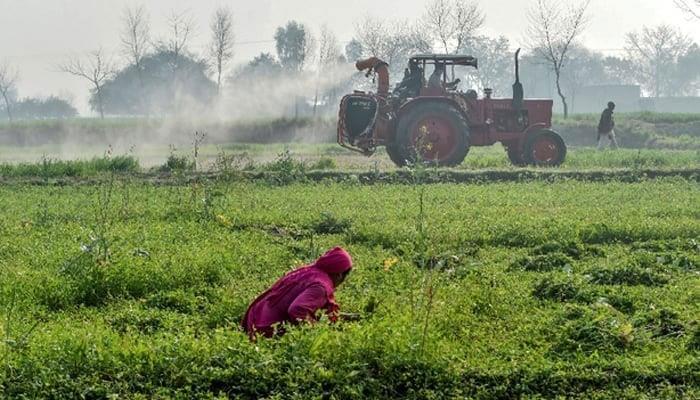
Flood-Hit Farmers In Charsadda Struggle As Faulty Maize Seeds Lead To Crop Failure
According to a report published in The News, Dr. Asar Khan, Director of Agriculture and Extension Charsadda, stated that the NGO Nida-e-Pakistan distributed poor-quality and expired maize seeds to 96 farmers across eight union councils in 2024. These seeds, combined with adulterated fertilizers, resulted in no grain yield, leaving the maize plants only suitable as fodder.
Dr. Khan remarked,“Not a single farmer's crop succeeded; the maize plants didn't produce any cobs. This failure cost the farmers their time, effort, and thousands of rupees in land lease payments.” He further noted that inquiries have been initiated against the NGO, and actions will be taken against those responsible.
Farmers Speak OutLocal farmers corroborated the claims of poor-quality seeds. Khan Muhammad (name changed), a farmer in Charsadda, revealed,“The free seeds provided by the NGO produced empty maize cobs. As small-scale farmers, we lease land for up to PKR 30,000 per acre annually. These failed crops cost us dearly.”
He added that the typical maize yield per acre is 20 to 22 maunds, but their harvest was limited to grass and fodder. After complaints, the NGO provided free wheat seeds this year as compensation.
Also Read: Three Killed, Two Injured in Khyber Shooting Incident
Another farmer shared a similar experience, noting,“Though the maize crop didn't yield grains, we used it as fodder. However, if the crop had been successful, our hard work and expenses wouldn't have gone to waste.”
Some farmers who purchased seeds independently reported better results, highlighting the gap in quality between market-bought seeds and those distributed by the NGO.
NGO's Defense and Expert InsightsNida Pakistan coordinator Zahoor Ahmed defended their actions, stating that the seeds were selected based on recommendations from agricultural experts. However, the chosen variety failed due to climatic changes and farmers' lack of proper care.
“We acknowledge the grain failure but provided farmers with free wheat seeds, fertilizers, and pesticides this season as compensation,” Zahoor Ahmed said.
Environmental journalist Muhammad Daud Khan criticized the lack of preparation, stressing the importance of climate adaptability when introducing new seeds in flood-hit areas.“NGOs must research the climatic challenges of a region before distributing seeds. Providing unsuitable seeds not only wastes farmers' efforts but also disrupts their livelihoods,” he emphasized.
Agriculture Department's AssuranceDr. Asar Khan assured farmers that the Agriculture Department is committed to protecting their rights and providing training and consultation.“We will not tolerate any exploitation of farmers. Those with complaints are encouraged to approach the district agriculture office,” he stated.
The incident underscores the need for thorough research and planning when aiding vulnerable farming communities, ensuring that support efforts do not unintentionally exacerbate their struggles.

Legal Disclaimer:
MENAFN provides the
information “as is” without warranty of any kind. We do not accept
any responsibility or liability for the accuracy, content, images,
videos, licenses, completeness, legality, or reliability of the information
contained in this article. If you have any complaints or copyright
issues related to this article, kindly contact the provider above.

















Comments
No comment